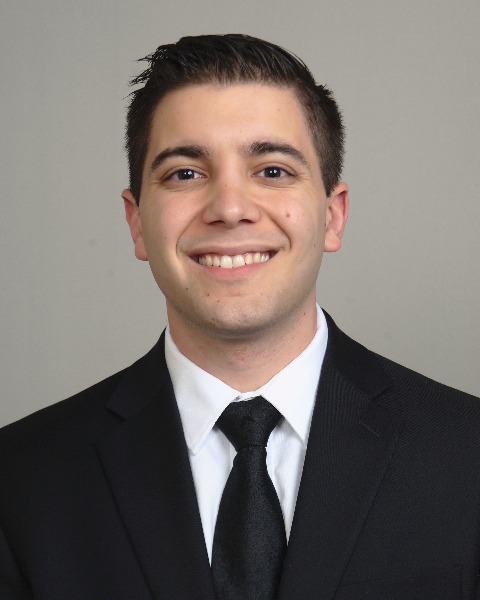Enfolded Fellowships in American Neurosurgical Residency
Friday, April 21, 2023


John Paul G. Kolcun, MD
Resident Physician
Rush University Medical Center
ePoster Presenter(s)
Introduction: Since the mandated shift to a seven-year duration for neurosurgery residency, enfolded fellowships (EFF) have become increasingly common. We attempted to quantify the distribution and characteristics of EFFs in American neurosurgery programs.
Methods: Utilizing a web-based survey, we queried accredited neurosurgery programs in the United States regarding the availability and qualities of EFFs. We asked if EFFs were offered, in which sub-specialties, if they are accredited by the Committee on Advanced Sub-Specialty Training (CAST), and if they are restricted to postgraduate-year 7 (PGY7). We collected responses from different positions in each program: chair, program director, program coordinator, and chief residents.
Results: Of 120 accredited American neurosurgery residency programs, 91 submitted responses (76%). Among these, 67 stated they offer some form of EFF (73.6%). The most common EFF were endovascular (57, 62.6%), spine (49, 53.9%), critical care (41, 45.1%), and functional (37, 40.7%). These were also the most common specialties listed as CAST-accredited by survey respondents. Spine and endovascular EFFs were most likely to be restricted to PGY7 (24.2% and 23.1%, respectively), followed by neuro-oncology (12, 13.2%). The most common EFFs reported as CAST-accredited but not restricted to PGY7 were endovascular (24, 26.4%) and critical care (23, 25.3%). Peripheral nerve, trauma, pediatrics, and stereotactic radiosurgery were the least common EFF.
Conclusion : The majority of US neurosurgery training programs offer some form of EFF. The most common sub-specialties represented include endovascular, spine, and critical care. Many of these EFFs are described as CAST-accredited by survey respondents. Trauma, peripheral nerve, and pediatrics are the least common EFFs.
Methods: Utilizing a web-based survey, we queried accredited neurosurgery programs in the United States regarding the availability and qualities of EFFs. We asked if EFFs were offered, in which sub-specialties, if they are accredited by the Committee on Advanced Sub-Specialty Training (CAST), and if they are restricted to postgraduate-year 7 (PGY7). We collected responses from different positions in each program: chair, program director, program coordinator, and chief residents.
Results: Of 120 accredited American neurosurgery residency programs, 91 submitted responses (76%). Among these, 67 stated they offer some form of EFF (73.6%). The most common EFF were endovascular (57, 62.6%), spine (49, 53.9%), critical care (41, 45.1%), and functional (37, 40.7%). These were also the most common specialties listed as CAST-accredited by survey respondents. Spine and endovascular EFFs were most likely to be restricted to PGY7 (24.2% and 23.1%, respectively), followed by neuro-oncology (12, 13.2%). The most common EFFs reported as CAST-accredited but not restricted to PGY7 were endovascular (24, 26.4%) and critical care (23, 25.3%). Peripheral nerve, trauma, pediatrics, and stereotactic radiosurgery were the least common EFF.
Conclusion : The majority of US neurosurgery training programs offer some form of EFF. The most common sub-specialties represented include endovascular, spine, and critical care. Many of these EFFs are described as CAST-accredited by survey respondents. Trauma, peripheral nerve, and pediatrics are the least common EFFs.
